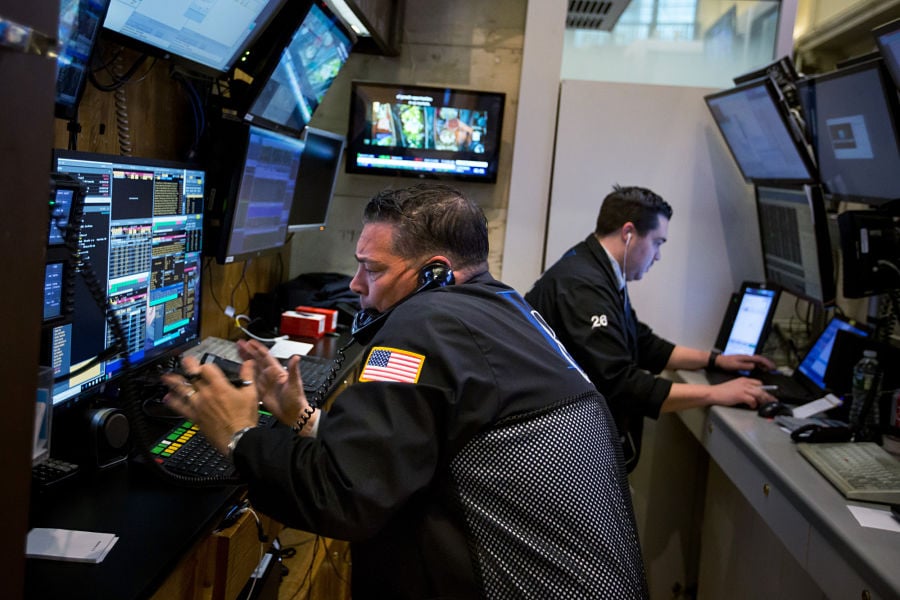Working on ways to position for a potential collapse in corporate bonds? JPMorgan Chase & Co. has an idea: the exchange-traded funds that track the market.
While ETFs would experience collateral damage if a "credit bomb" were to go off, their greater liquidity through the secondary market might leave them less damaged than other alternatives, JPMorgan strategists including Bram Kaplan and Marko Kolanovic wrote in a note Friday. The Bloomberg Barclays US Corporate Bond Index is down 3.7% for the year, compared with a gain of around 6% in 2017.
"In the hypothesized scenario where credit markets freeze, every fund holding these securities will be hit hard and find it difficult to sell portfolio holdings," the JPMorgan strategists wrote. "However, ETFs have the advantage of offering a secondary market, which provides holders with another avenue to liquidate (without needing to trade the underlying bonds), and may also provide a price-discovery function if the underlying assets aren't trading."
Assets in credit ETFs are about 10% of the size of credit mutual funds, so the latter would probably put more stress on the underlying market from any fund liquidations or redemptions, according to Mr. Kaplan and Mr. Kolanovic.
Furthermore, in extreme circumstances where the market for corporate bonds becomes distressed and illiquid, an ETF manager would be likely to keep the redemption basket as a representative sampling of the portfolio -- including some illiquid securities -- or temporarily freeze redemptions, the strategists wrote.
(More: 11 ways advisers are using ETFs and mutual funds)
The report comes the same week that Adam Schwartz, a former director at Fir Tree Partners who runs his own hedge fund, said that he was shorting bond ETFs because their "structure isn't really designed for a large market sell-off." Specifically, he asserted that the funds would have to give away their most liquid securities, leaving their portfolios clogged with distressed and illiquid notes.
ETFs and mutual funds have different redemption processes, but they produce the same result in that they usually require the liquidation of part of the portfolio, JPMorgan noted.
"Is shorting credit ETFs a good way to position for a possible collapse of corporate bonds?" the strategists posited. "Maybe (if you believe such an event is likely), but no more so than shorting the underlying index (e.g. via swap), and it's a costly proposition in the meantime."
Shorting the iShares iBoxx High Yield Corporate Bond ETF
(HYG) currently costs more than 8% a year on a carry basis since it involves paying the bond yield of approximately 6.75% plus a borrow cost of about 2%, minus the 0.49% management fee, the JPMorgan strategists wrote.
That said, they acknowledged that there's still a chance that credit ETFs could cause problems.
"We also can't dismiss the very small probability that if enough investors believe the story that these ETFs are a 'ticking bomb,' their shorting activity could become a self-fulfilling prophecy, even if their views are misguided or self-serving," they wrote.
(More: Advisers revisit bond ladders as rates rise)







